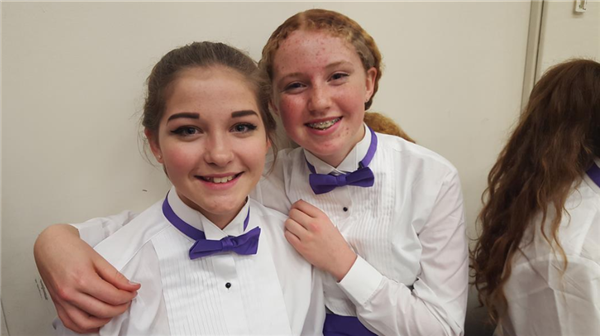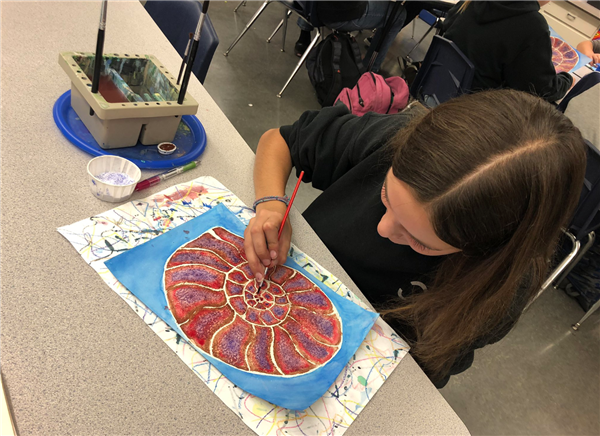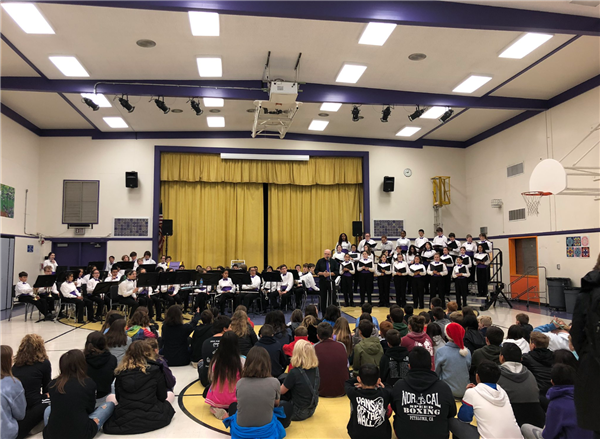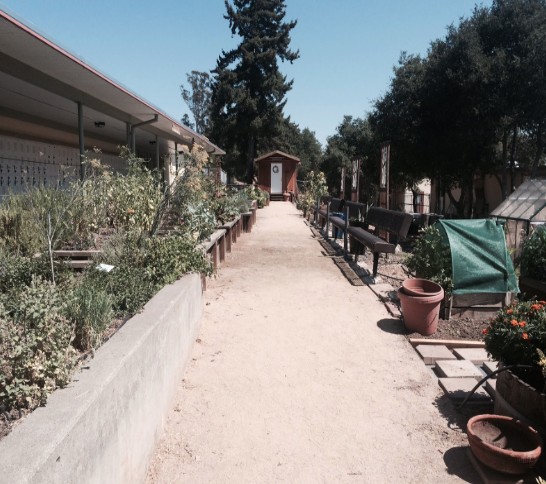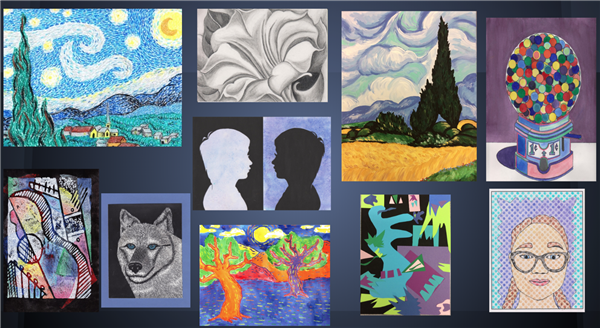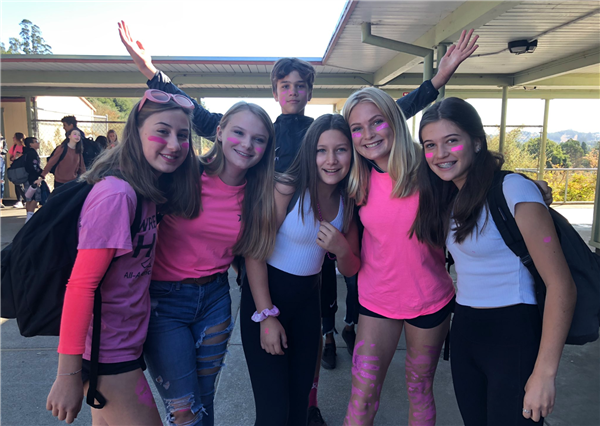Petaluma Junior High School
Home of the Bantams
-
Electives
-
Agriculture Basics
This new year long junior high course is an introductory class designed to expose students to different facets of the agriculture and the leadership organization - FFA. Students will gain knowledge in animal science, plant science, leadership skills, public speaking, and FFA opportunities. Student learning will occur through lectures, student projects, group discussions, hands on experiences, FFA Leadership experiences, Career Development Event participation, and their Supervised Agriculture Experience program (SAEP). Students will also gain knowledge in agricultural history; the plants we grow; the resources we use; the resources we recycle; the energy we consume; the animals we care for; the food we eat; careers in agriculture; and the connection between agriculture and consumer products.
Art
This course is designed to introduce students to various art mediums and techniques. Students will learn basic skills in drawing and painting while exploring materials such as graphite, colored pencil, ink, charcoal, pastel, watercolor, and acrylic paint. The instructional units of the course will focus on the Elements of Art: Line, Shape, Form, Value, Texture, Color, and Space.
Beginning & Intermediate Band
Beginning and Intermediate Band is offered to students interested in learning to play an instrument common to the concert band. Students are given group instruction on the instrument of their choice and are encouraged to progress at an average rate of speed. This class is also open to students who may have started instruments at the elementary level, but who need more instruction before entering the advanced band.
Advanced Band
Advanced Band is offered to students who have progressed beyond a beginning level on their instrument, and who are able to perform music of an intermediate level. Students are given group instruction on the instrument of their choice and are encouraged to progress at an average rate of speed. Students will become acquainted with appropriate interpretation of musical styles such as classical, rock, jazz and pop.
Chorus
Chorus is offered to students interested in learning to sing with a group in a performing ensemble. Students are given group instruction on vocal technique and encouraged to progress at an average rate of speed.
Conditioning for Athletes
This course focuses on developing motor skills to enhance student performance in athletics. This is a supplemental class to Physical Education and sports participation. The class focus will be on general athletic conditioning and skill development. Students will: improve individual athletic motor skills, develop a personalized and sport-specific training plan, improve on positive life skills, and explore topics such as nutrition, psychology, drug/alcohol avoidance, injury prevention and career occupations as they relate to sport.
Introduction to Broadcasting
Students in this class will prepare and produce Petaluma Junior High School’s recorded news broadcast, Bantam Broadcast. In addition, students learn about ethics in broadcasting, camera operations, video editing, interviewing, and speaking on camera. Samples of lessons covered while creating a weekly broadcast include: learning how to get the most out of their camera; how to frame shots; the differences between a studio camera and a remote camera; how to run an interview; how to identify the best person to interview; what questions to ask an interviewee; how to create a broadcast package; the roles and responsibilities in the studio; and how to add snazzy graphics and transitions to a live broadcast. This introductory course will prepare students for broadcasting classes at Petaluma High School.
Leadership
Students will receive both theoretical and practical training in leadership. Some of the skills to be focused on are: goal setting, team building, communication, problem-solving/decision making, effective meetings, public speaking, and presentations. The course is designed to integrate leadership skills with practical applications. Activities will include dances, assemblies, rallies, lunchtime activities, special events, community involvement, student/faculty relations, etc. The key to the program’s success is students’ effort with both creating fun events and the responsibility of “making it happen”. This class will provide the time and the training to make this student-run program a success. Within Leadership, students will also produce the school’s memory book, the Yearbook. Students will participate in taking photographs, planning layouts, developing content ideas, writing copy, and developing and implementing marketing ideas. Students will gain valuable and real-world skills such as how to work as a team, time management, business/sales/advertising, writing, responsibility and communication.
Spanish (1A and 1B)
Spanish 1A is a 7th-grade year-long course offered to interested students who would like to learn and become proficient in oral and written Spanish. When taken as a two-year semester course in sequence with Spanish 1B being taken in 8th grade, this class can be applied towards one year’s credit in first-year Spanish at the high school level. Any student who successfully completes both years--Spanish 1A and 1B--will fulfill one year’s Foreign Language requirement that will be applied towards high school and college requirements.
STEM (Science, Technology, Engineering, and Mathematics) & Computer Science
This is a beginning STEM course designed to educate students in four specific disciplines— science, technology, engineering and mathematics. Rather than teach the four disciplines as separate subjects, STEM integrates them into a cohesive learning paradigm based on real-world situations. A typical unit/lesson in STEM is based on investigating the real world to see how things work and also how we can solve real world problems. This course is split into two sessions, one per semester. During session one, students will explore a variety of STEM topics through hands-on and project-based activities. During session two, students will dive deeper into computer science, learning the basics of coding using Micro: Bits and EV3 Lego Robots.
